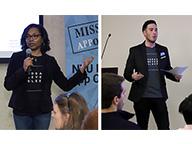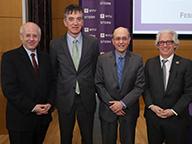Faculty News
—
Professor Thomas Philippon's joint research on corporate investments is referenced
—

Excerpt from The New York Times -- "According to an analysis by Germán Gutiérrez and Thomas Philippon of New York University, the ratio of the market value of American corporations to the replacement value of their capital stock has roughly tripled since the 1970s."
Faculty News
—

Excerpt from The New York Times -- "According to an analysis by Germán Gutiérrez and Thomas Philippon of New York University, the ratio of the market value of American corporations to the replacement value of their capital stock has roughly tripled since the 1970s."




















